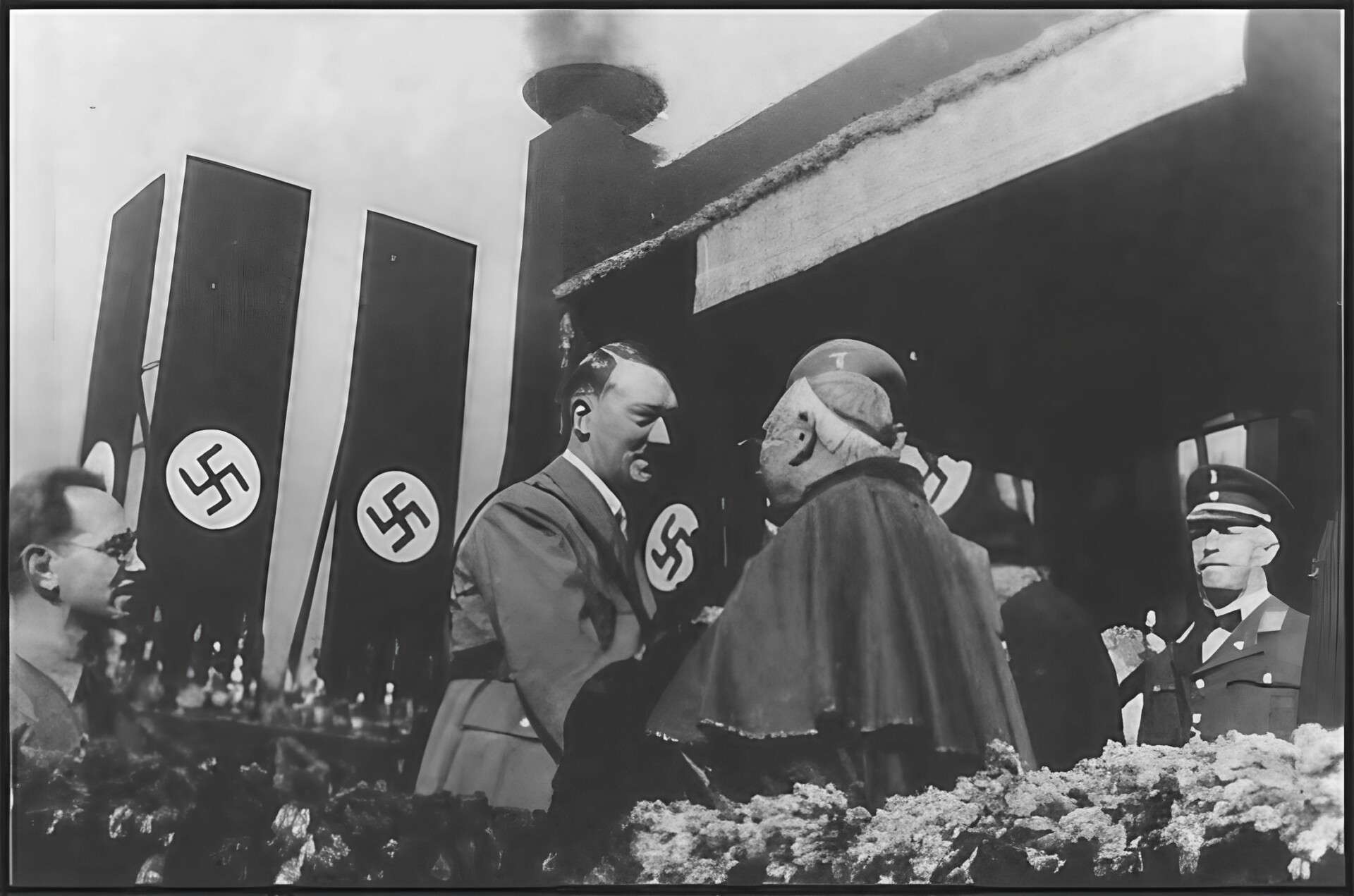The concept of the “Great Harvest of Souls” is not new in Christianity, but it has had different emphases and expressions throughout the history of the church. This concept has mainly been based on the interpretation of certain biblical passages, but its popularization in the forms we know today comes from more recent religious movements, particularly from the 18th and 19th centuries, with a strong push in the 20th century.
The concept of the “harvest” of souls has its roots in the teachings of Jesus, who used agricultural metaphors to describe the work of evangelization and the time of judgment. Verses like Matthew 9:37-38, where Jesus says, “The harvest is plentiful but the workers are few,” and others like the parable of the wheat and the tares (Matthew 13:24-30), are the basis for this teaching. However, in the early church, the focus was more on the expansion of the gospel and the salvation of individuals without an explicit emphasis on a “final great harvest.”
During the evangelical revivals of the 18th and 19th centuries, the concept of a great harvest of souls took shape in a more structured way. Preachers like John Wesley and George Whitefield, leaders of the Great Awakening in Great Britain and the United States, highlighted the need for mass repentance and a response to the preaching of the gospel. Although they did not speak directly of a “great harvest” in the apocalyptic sense, their emphasis on mass conversion and the salvation of souls laid the foundations for later evangelical movements.
In the 19th century, during the Second Great Awakening in the United States, preachers like Charles Finney promoted mass evangelization campaigns. Finney, in particular, introduced methods to attract large numbers of people to conversion, such as the use of revival meetings and the “sinner’s bench.” This movement emphasized the idea that a large number of conversions in a short period was possible and desirable, a precursor to the modern idea of the great harvest of souls.
The 20th century, especially with the rise of the Pentecostal movement in 1906 with the Azusa Street Revival in Los Angeles, saw a new interpretation of the great harvest of souls. The Pentecostals believed in the closeness of Christ’s return and the power of the Holy Spirit to bring about a worldwide revival before that event. For them, the great harvest of souls was a sign of the “last days,” where the Holy Spirit would be poured out in a special way to draw multitudes to salvation.
In the middle of the 20th century, evangelists like Oral Roberts and Billy Graham took the idea of the harvest of souls to massive audiences. Billy Graham, through his evangelistic crusades, emphasized the importance of an immediate response to the call of Christ, while Roberts and others within the Charismatic movement preached about the arrival of a global revival that would bring millions to the faith.
During the 1980s, in the United States, the term “decade of the harvest” became popular, especially among evangelical and charismatic groups. This was an organized effort to reach as many conversions as possible before the turn of the millennium, driven by organizations like Campus Crusade for Christ, now Cru, and other mass evangelism ministries.
Around the same time, the concept of the great harvest of souls was promoted by televangelists and leaders of megachurches such as Pat Robertson, Kenneth Copeland, and later, others like T.D. Jakes and Joel Osteen. These leaders, with their messages of prosperity and revival, spoke of a great harvest of souls as an opportunity for millions to turn to Christ before the end of time.
Who Preaches About the Great Harvest of Souls?
Pentecostals and Charismatics have been the most enthusiastic in promoting the idea of a great harvest of souls. They believe that the Holy Spirit is working in a special way in these times to draw many to the faith before Jesus’ return. The preaching of the great harvest has also been common among leaders of large churches and television evangelists, who see their ministries as instruments to fulfill this global purpose.
For Baptists and Traditional Evangelicals, their approach may be less charismatic, but they also promote the idea that the church must work to reach as many people as possible before the end of time.
Teachings about the great harvest are often based on Bible verses like Matthew 9:37-38, where Jesus says: “The harvest is plentiful, but the workers are few. Ask the Lord of the harvest, therefore, to send out workers into his harvest field.” It is also referenced in Revelation 14:15, where an angel declares that the harvest of the earth is ripe and that it is time for the harvest.
The idea of the great harvest of souls motivates evangelical churches to engage in active evangelism, both locally and through missionary efforts in other parts of the world. It is seen as a responsibility of every believer to participate in the proclamation of the gospel to prepare for the final harvest. For many of these congregations, the great harvest is linked to the expectation of a worldwide revival, where millions will convert to Christianity. This revival is seen as a special time in which the Holy Spirit will act in an extraordinary way, touching the hearts of many people.
The great harvest of souls is also associated with the idea that time is limited before the return of Jesus. It is preached that the time to save souls is now, before the end of the world and God’s judgment, which adds a sense of urgency to evangelism activities.
The “great harvest of souls” is a deeply rooted belief in many evangelical churches, especially those that emphasize evangelism and spiritual revival. They see this concept as an opportunity and a mandate to work hard in the expansion of the gospel before the return of Jesus Christ. Although there are variations in interpretation and emphasis, most of these churches agree that God wants the message of salvation to reach many people before the final time comes.
The Decade of the Harvest Marked the Beginning of the Megachurch Concept
The “Decade of the Harvest” was an evangelistic initiative that mainly took place during the 1980s and early 1990s, aimed at promoting mass evangelism and the global growth of the Christian church. It was driven by various evangelical and charismatic organizations, which came together under the common goal of reaching as many people as possible with the gospel before the turn of the millennium, with the expectation that these efforts would contribute to a great spiritual revival and a global response to the Christian faith.
One of the goals of the Decade of the Harvest was worldwide evangelism. Leaders who supported this initiative believed it was possible to reach every corner of the world with the gospel, mobilizing Christians from different denominations to proactively share their faith. They sought to reach people not only locally but also in less accessible areas and places with little Christian presence.
The Christian churches and organizations that participated in the Decade of the Harvest collaborated to mobilize human and financial resources for this goal. This included organizing mass evangelism campaigns, distributing Christian literature, creating radio and television programs, and training missionaries to be sent to different parts of the world. International networks of churches and ministries were established to coordinate evangelistic efforts. This allowed for greater collaboration between congregations of different denominations, such as Baptists, Pentecostals, Charismatics, and other evangelical churches. The idea was that, by working together, a more significant impact could be made in the mission to preach the gospel to all nations.
Several leaders and organizations were key to driving the Decade of the Harvest, some of which already had significant influence in the field of global evangelism, such as Campus Crusade for Christ (now Cru), an organization founded by Bill Bright, which was one of the most active during the Decade of the Harvest. Cru organized mass events and distributed evangelistic materials, such as the famous booklet “The Four Spiritual Laws”, with the aim of reaching millions of people.
Another was the Lausanne Movement. This movement, which began with the World Evangelization Congress in Lausanne, Switzerland, in 1974, continued its emphasis on global evangelism during the Decade of the Harvest. The Lausanne Movement sought to unite Christians from different backgrounds to collaborate in the mission of bringing the gospel to all peoples and nations. The organization of the Billy Graham Evangelistic Association, founded by Billy Graham, one of the most influential evangelists of the 20th century, also supported the vision of the Decade of the Harvest. His crusades and evangelistic campaigns were an important part of the effort to reach millions with the Christian message.
Other televangelists, such as Pat Robertson, Oral Roberts, and other TV preachers, saw the Decade of the Harvest as an opportunity to expand their reach, using mass media to broadcast the gospel to a global audience. During this period, the focus was on the growth of congregations through the adoption of modern strategies for church growth, some of which included:
Church growth campaigns.
Megachurches began to emerge during this period, promoting more modern and organized methods to attract new members, such as attractive services, contemporary music, and community events. The goal was to make the church experience more accessible and relevant to contemporary society.
The focus, or part of the mission of the Decade of the Harvest, was to reach “unreached peoples” or ethnic groups who had never been exposed to Christianity. Significant efforts were made to send missionaries and plant churches in regions where the Christian presence was minimal or non-existent. There was also an emphasis on prayer and fasting, so many leaders of the Decade of the Harvest emphasized the need for prayer and fasting as means to spiritually prepare the church and to open paths for evangelism. They believed that prayer could prepare the spiritual ground for people to be more receptive to the gospel message.
As an overall result of the Decade of the Harvest, it can be said that it was successful in terms of numerical growth of evangelical churches in many regions of the world, especially in Latin America, Africa, and parts of Asia. Evangelical Christianity grew significantly, and many congregations became larger and more visible. Despite the enthusiasm and efforts made, the Decade of the Harvest also faced challenges and criticisms. Some pointed out that the emphasis on numerical growth could lead to a superficial approach, where the quantity of conversions was prioritized over the depth of discipleship. Others criticized that the preaching was often more pragmatic than theologically deep, resulting in a lack of solid training for new converts.
Although the specific effort of the “Decade of the Harvest” ended in the 1990s, its impact has remained. The idea of large-scale evangelism and using modern media to spread the Christian message continues to be a distinctive feature of many evangelical and charismatic ministries today. Furthermore, this period contributed to the development of many of the megachurches and evangelistic networks that have continued to grow in the past few decades.
Many of these churches succeeded in attracting hundreds, even thousands, of members, who began meeting in shopping malls, restaurants, convention centers, and even stadiums. Those preachers who did not adapt to this new approach to evangelism were left behind, and their congregations ended up divided or, in some cases, completely disappeared.
This phenomenon caused members of small congregations to migrate toward the “large churches,” resulting in a massive transfer of believers from smaller communities to larger ones.
Worship services were transformed into entertainment events that incorporated the latest technologies, such as more powerful sound systems, lights, and projectors. The style of music changed dramatically, adopting worldly rhythms to praise God; some congregations even danced to rock, bachata, or cumbia music. Many churches added reclining seats and carpets to make their members more comfortable.
According to their leaders, this was the long-awaited harvest of souls they had desired for so long.
Although today the great harvest is talked about less than it was in the 1980s, many of its members still wish to participate in it in some way. They dedicate time to proclaiming the word of God in parks or on the streets, with the intention of reaching souls for Christ and, at the same time, increasing the membership of their churches.
Some Christians dedicate part of their lives to being missionaries, especially in poor countries, where they teach new believers that the gospel is the solution to their economic problems and health needs.
Sadly, many Christians become discouraged from attending different congregations for various reasons. One of the main reasons is that, despite diligently paying their tithes, offerings, and even promises, their economic or health situation remains the same.
Thus, just as thousands of people confess Jesus as the savior of their lives, many others stop attending church or simply move to other churches, disappointed for not finding refuge or answers to their needs in their congregations.
However, the harvest of souls announced by the preachers is very different from what the word of God teaches. In this study, we will analyze what Jesus meant when He spoke about the harvest. In summary, the great harvest is not related to the “conversions” of new believers, but to the end times.
A harvest does not depend on the volume of the harvest, but on the right moment to carry it out.
To better understand this topic, it is helpful to observe what happens in nature. Let’s think, for example, of a farmer who is dedicated to growing corn. This farmer may have a large field, allowing him to plant and produce an abundant harvest, which provides him with great economic benefits. In contrast, a small farmer, with fewer resources, may have a smaller plot of land, which only provides enough to cover his basic needs.
Both farmers, despite their differences in the size of their fields, depend on the same conditions: they wait for the rainy season to plant and then worry about the germination process, the growth of the plants, and finally, the ripening of the fruit. Once the corn has reached its optimal point, both farmers, almost simultaneously, begin harvesting what they planted months ago.
However, in both cases, the harvest does not depend so much on the size of the field, but on the ripening time of the fruit. The process is similar: the success of the harvest is determined by the right moment to gather it, not by the extent of the cultivated land. The land, whether large or small, requires constant care to ensure that the harvest is healthy and abundant, regardless of its size.
Farmers strive to keep their crops in good condition, ensuring that the plants grow strong and healthy. This involves removing weeds, clearing rocks, and addressing any other obstacles that could hinder the seed from germinating and developing properly. Their goal is for the field to produce good fruit, which will be usable and of high quality.
This task requires the dedication of experienced workers, who know their craft well and invest time and effort into taking care of the plantation, acting as guardians of the land belonging to the owner. The larger the field, the greater the need for workers to maintain it in optimal conditions. However, even with great care, there are always weeds that are difficult to completely remove. That’s why, when the harvest time arrives, those weeds are eventually pulled out, used as feed for animals, or simply burned to avoid affecting the rest of the crop.
This is precisely what will happen when God’s field of cultivation is prepared. It will not depend on the size of the land, meaning, the number of people in each congregation at that time. What really matters is when the harvest is ready to be gathered, and that time is not determined by man, but by God.
For this reason, it is crucial that we understand that the most important factor is the quality of the fruit and the quantity each plant produces. It would be of no use to have the largest field in the region if it is full of weeds or if the fruit it produces is damaged.
In other words, a congregation may have 50,000 members, hold four services every Sunday, and boast impressive structures and organization, but if its teaching is deficient and the fruits it is producing are poor, it will be cut down and thrown into the fire. The abundance of faithful does not replace the need for genuine, quality spiritual fruit.
Jesus taught that He expected us to produce good and abundant fruit, as mentioned in Matthew 3:10: “The axe is already at the root of the trees, and every tree that does not produce good fruit will be cut down and thrown into the fire.” Here, the metaphor is clear: it is not about the greatness of the land or the number of trees, but about the quality of the fruit each one produces.
This is also confirmed in another passage, Matthew 12:33: “Make a tree good and its fruit will be good, or make a tree bad and its fruit will be bad; for a tree is recognized by its fruit.” The emphasis is on the fruit: if it is good, it comes from a healthy tree; if it is bad, it is a sign of a tree that has not been properly cared for.
The quality of the fruit depends largely on the soil in which it was planted. If the soil is fertile, the tree or plant will grow strong and produce good fruit. But if the soil is barren or desert-like, the result will be a weak plant of low quality, as explained in Matthew 13:23: “But the one who received the seed that fell on good soil is the one who hears the word and understands it. This is the one who produces a crop, yielding a hundred, sixty, or thirty times what was sown.” This verse gives us a fundamental key to fruit production: the understanding and depth with which the word of God is received and assimilated.
When a person does not fully understand the word of God, they will not produce the expected fruit. This is not simply referring to those who are distracted during the service or who do not attend Sunday school, but to those who fail to internalize God’s purpose in their minds and hearts. The true understanding of God’s plan is what leads to genuine spiritual growth and the production of fruit that pleases God.
When a Christian limits themselves to passively accepting what is offered during the Sunday service, without dedicating time to examine the word of God or to prayer, they will never fully comprehend God’s purpose. This lack of understanding prevents them from acting in accordance with the divine plan, and as a result, their life will not produce the fruit God expects. The absence of a deep commitment to teaching and prayer inevitably leads to fruit that lacks the spiritual quality that pleases God.
The entire earth is God’s vast field of cultivation, which throughout history has given rise to countless individuals who have faithfully responded to His expectations. These individuals have produced good and abundant fruit, a legacy that has endured through the centuries. However, there have also been those who did not meet God’s expectations, as they never came to understand the purpose for which they were called.
Ultimately, we will all have to give an account of what we have done, both the good and the bad. The final evaluation will not depend only on our intentions but on the visible fruit our lives have produced.
For God’s field of cultivation to yield an abundant and quality harvest, there is a need for people who will care for this cultivation. Throughout history, we have seen examples of servants like Peter, John, Paul, and others who remained faithful to the teachings of Jesus and protected the sound doctrine. These men not only deeply assimilated the teachings of their Master, but they also took care to guide and protect their brothers in the faith, passing on the true doctrine through the Holy Spirit.
On one occasion, Jesus expressed this need for workers to His disciples, as recorded in Matthew 9:36-38: “When He saw the crowds, He had compassion on them, because they were harassed and helpless, like sheep without a shepherd. Then He said to His disciples, ‘The harvest is plentiful, but the workers are few. Ask the Lord of the harvest, therefore, to send out workers into His harvest field.’” (Matthew 9:36-38).
With this statement, Jesus emphasized the great need for committed people to work in His field, meaning in the world, to take care of the harvest, which represents all those who are ready to receive the message of salvation. Jesus’ compassion for the crowds reveals the heart of God, who desires that all have the opportunity to know the truth. But it also makes it clear that the work is great and that many more dedicated workers are needed, willing to invest time, effort, and love to ensure that the fruit grows and is maintained.
The harvest is being prepared for the final day.
The harvest of God is all of humanity who have believed that Jesus is the Messiah. However, this harvest needs workers to care for it to prevent the weeds from growing too much and ruining the crop.
It is important to clarify that the return of Jesus is, in itself, the sign that the harvest is ripe, as mentioned in Revelation 14:15: “Another angel came out of the temple and called in a loud voice to Him who was sitting on the cloud, ‘Take your sickle and reap, because the time to reap has come, for the harvest of the earth is ripe.’”
Jesus spoke on many occasions about this glorious event, although He concealed this treasure of wisdom from the general public. Some think that the parables were meant to explain spiritual realities through comparisons with elements of nature. However, this is not entirely true. Jesus would separate His disciples to teach them the true meaning of these parables. If the purpose of the parables had been to clarify mysteries or themes related to the kingdom, why would He have needed to explain their meaning to His own disciples? This would not make sense. The purpose of the parables was not to explain or reveal; on the contrary, it was to hide the truths of God from others, and then reveal them only to His servants.
A clear example of this is found in the parable of the wheat and the tares, narrated in Matthew 13:24-30. “Jesus told them another parable: ‘The kingdom of heaven is like a man who sowed good seed in his field. But while everyone was sleeping, his enemy came and sowed weeds among the wheat, and went away. When the wheat sprouted and formed heads, then the weeds also appeared. The owner’s servants came to him and said, ‘Sir, didn’t you sow good seed in your field? Where then did the weeds come from?’ ‘An enemy did this,’ he replied. The servants asked him, ‘Do you want us to go and pull them up?’ ‘No,’ he answered, ‘because while you are pulling the weeds, you may uproot the wheat with them. Let both grow together until the harvest. At that time I will tell the harvesters: First collect the weeds and tie them in bundles to be burned; then gather the wheat and bring it into my barn.’”
Generally, when teaching about this parable, it is often associated with a bad action that someone performs, comments on, or allows in a specific situation, like gossip or malicious comments that seek to harm a brother. However, Jesus‘ focus goes much deeper than this kind of behavior. Jesus is not talking about mere gossip or malicious comments, but about the deceptive similarity between the weeds and the wheat, and how both grow together until the harvest is ready to be gathered.
The key to this parable lies in recognizing the difference between the wheat and the weeds, as that is its true meaning. The wheat is a useful and valuable food, while the weeds are a poisonous plant, useless for the harvest. Even an experienced farmer could be confused between the two plants due to their similar appearance during the early stages of growth. For those who are inexperienced in agriculture, a field that seems full of wheat at first glance may actually have more weeds than wheat, because both plants are almost indistinguishable in the beginning.
The real problem in this mix is that if the weeds are not properly separated from the wheat at the time of the harvest, they could contaminate the useful and good fruit. This illustrates an important spiritual principle: the weeds do not represent bad actions, but rather people who, despite seeming similar to true believers, do not actually share the same spiritual nature. The parable, then, warns us about the need to discern between those who truly produce fruit for the Kingdom of God and those who, although they appear to be part of the harvest, are not.
This is not a personal interpretation of the biblical text, as some might suggest, but the explanation that Jesus Himself gave to His apostles, recorded in Matthew 13. In this explanation, Jesus clarifies the true meaning of the parable, revealing that the field is the world, the good seed represents the children of the kingdom, and the weeds represent the children of the evil one. Matthew 13:36-43 says: “Then he left the crowd and went into the house. His disciples came to him and said, ‘Explain to us the parable of the weeds in the field.’ He answered, ‘The one who sowed the good seed is the Son of Man. The field is the world, and the good seed stands for the people of the kingdom. The weeds are the people of the evil one, and the enemy who sows them is the devil. The harvest is the end of the age, and the harvesters are angels. As the weeds are pulled up and burned in the fire, so it will be at the end of the age. The Son of Man will send out his angels, and they will weed out of his kingdom everything that causes sin and all who do evil. They will throw them into the blazing furnace, where there will be weeping and gnashing of teeth. Then the righteous will shine like the sun in the kingdom of their Father. Whoever has ears, let them hear.’”
The end time will be the moment when the Lord gathers the harvest that His field has produced. In this final event, He will take the wheat—that is, the righteous and faithful—and place them by His side, keeping them for eternal life. At the same time, He will cut the weeds—which represent the wicked and those who did not bear fruit—and cast them into the fire to be burned.
A fascinating detail about the wheat and the weeds is the great similarity between the two, both in the appearance of the plant and in the form of its fruit. During growth, the wheat and the weeds look almost identical, which can lead to easy confusion for those who do not know them well. However, when the time of the harvest comes, God, who perfectly knows each one, will clearly distinguish who the wheat is and who the weeds are. His knowledge is absolute, and nothing escapes His gaze.
At the time of the harvest, both the wheat and the weeds will be cut. Although to the human eye they may seem similar, the harvesters—who are described in the Scriptures as the angels of God—know with certainty the difference between the two. They will separate the wheat to store it in the Lord’s barn, while the weeds will be thrown into the fire to be destroyed, symbolizing the fate of those who have not followed the path of truth.
It is important to clarify a fundamental concept about the term “angel.” When the Bible says that the angels are the harvesters, some preachers interpret this as referring to themselves, because the word “angel” means “messenger.” In this way, they believe that they, as bearers of God’s message and leaders of congregations, are responsible for the harvest. However, this interpretation is incorrect and lacks biblical support.
In this context, Jesus is specifically referring to His heavenly angels, those spiritual beings who serve God in heaven. They are the ones who, at the designated time, will carry out the task of separating the wheat from the weeds. There is no indication in the Scriptures that humans, even if they are preachers or religious leaders, take on the role of angels in the process of the harvest. The task of the angels is uniquely and exclusively divine in nature, as they have the knowledge and authority given by God to discern between the righteous and the wicked.
This distinction is crucial for understanding the role of each in God’s plan: humans are called to sow and tend the field, meaning to preach the word and guide believers, while the angels have the responsibility for the final gathering, which symbolizes the judgment and the final separation between those who have borne fruit and those who have not.
Thus, the harvest will be carried out by those who can truly distinguish between the wheat and the weeds, that is, the angels of God. For now, the weeds continue to grow alongside the wheat, which is evident in our days. We see examples in pastors involved in sexual scandals, heavy metal bands presenting themselves as “Christian,” “Christian” wrestlers, “Christian” beauty contests, among other cases. This undoubtedly shows that the weeds have spread throughout the world and are present in many congregations.
Wherever we go, we will find both plants growing together, but the time will come when the harvest will be ripe, that is, when the fullness of the Gentiles has been reached according to God’s plan. At that moment, the harvest will begin.
In other words, the wheat represents the children of God who are born again, those who have been baptized in water and by the Holy Spirit. It is precisely the Holy Spirit that is the seal distinguishing the children of God from the children of darkness. Most of those who possess this seal will produce good fruit, as mentioned in Matthew 7:15-16: “Watch out for false prophets. They come to you in sheep’s clothing, but inwardly they are ferocious wolves. By their fruit you will recognize them. Do people pick grapes from thornbushes, or figs from thistles?” False prophets are identified not by their words, but by their actions; and this is the true nature of the weeds.
The weeds can be easily recognized if we observe carefully those around us in the congregation. It is enough to identify those who seek material things more than giving glory to God, even if it is the pastor himself. The weeds are people who attend meetings and services regularly, but whose personal life reflects the superficiality and inconsistency of their words. They resemble true Christians, but appearance will not be enough before the Lord.
The apostle Paul had a very clear understanding of who the weeds were, and he warned the believers in Rome about them. In Romans 8:5-9 we read: “Those who live according to the flesh have their minds set on what the flesh desires; but those who live in accordance with the Spirit have their minds set on what the Spirit desires. The mind governed by the flesh is death, but the mind governed by the Spirit is life and peace. The mind governed by the flesh is hostile to God; it does not submit to God’s law, nor can it do so. Those who are in the realm of the flesh cannot please God. You, however, are not in the realm of the flesh but are in the realm of the Spirit, if indeed the Spirit of God lives in you. And if anyone does not have the Spirit of Christ, they do not belong to Christ.”
Paul makes a clear distinction between two groups of people: those who live guided by the Spirit and those who follow the desires of the flesh. The former, like the wheat, strive to please God and live according to His will, manifesting spiritual fruits in their lives. The latter, represented by the weeds, are led by the desires of the flesh, which distances them from true spiritual life and God’s purpose. Paul’s warning is clear: only those who live under the guidance of the Holy Spirit can truly be considered part of God’s people.
Paul states categorically that those who do not have the Holy Spirit do not belong to Christ. This emphasizes the importance of a transformed life, guided by the Spirit, as evidence of genuine faith.
It is essential to understand an important reality: when Jesus Christ returns, He will come to judge both the wicked and many “pseudo-Christians” who, although they seem to be true believers, are not. These individuals go unnoticed because they use the same language as believers, behave like Christians when they are in the presence of others, use the same expressions, and even preach with great fervor. They attend the same congregations as you and I, but sadly for them, they will face sudden destruction because they did not please God with their lives or actions.
Although we do not know the exact moment when this will happen, we know for certain that the day will come. And when it does, the Lord will proclaim: “Put in the sickle, for the harvest is ripe. Come, trample the grapes, for the winepress is full, the vats overflow; for their wickedness is great.” (Joel 3:13).
On that day, no one will be able to hide, for it will be a supernatural event visible to all. The wicked will seek refuge from the wrath of God, but they will not escape, as the Scriptures mention in Obadiah 1:2-4 and Nahum 1:5-7. In Revelation 6:15-17, we read: “Then the kings of the earth, the princes, the generals, the rich, the mighty, and everyone else, both slave and free, hid in caves and among the rocks of the mountains. They called to the mountains and the rocks, ‘Fall on us and hide us from the face of Him who sits on the throne and from the wrath of the Lamb! For the great day of their wrath has come, and who can withstand it?’”
It is important to note that this period of judgment will be brief, but extremely intense, similar to the plagues that struck Egypt. Jesus Himself warned in Matthew 24:22: “If those days had not been cut short, no one would survive, but for the sake of the elect those days will be shortened.” This means that the final days will be few, but extremely difficult for all. When Jesus Christ returns in the clouds, He will call those who were predestined before the foundation of the world to be part of His Heavenly Kingdom, as described in Ephesians 1:4.
Jesus Christ, with the voice of an archangel and with the trumpet of God, will send His angels to gather His elect. “And He will send His angels with a loud trumpet call, and they will gather His elect from the four winds, from one end of the heavens to the other.” (Matthew 24:31).
The elect of God are scattered throughout the world; they are the wheat mentioned in the Scriptures. The Bible tells us that when the trumpet sounds, all the righteous will gather (Revelation 10:7). This will be the moment when God will separate the wheat from the weeds: some will be taken, and others will be left to be cast into the fire. The weeds represent those who have not followed God’s way, while the wheat symbolizes the faithful who have persevered in faith and have been sealed by the Holy Spirit.
The last trumpet will mark the moment when Jesus will come to take His elect. This event coincides with the period described in Revelation as the voice of the seventh angel. In this time, the resurrection of the dead and the rapture of those who will sit on thrones to judge the nations will take place.
If you would like to know more about “The Rapture of the Church” and “The Resurrection of the Dead”, I invite you to listen to our studies titled similarly.
As 1 Corinthians 15:52 says: “In a moment, in the twinkling of an eye, at the last trumpet. For the trumpet will sound, the dead will be raised incorruptible, and we shall be changed.” Similarly, 1 Thessalonians 4:16 describes this glorious event when the faithful will meet the Lord upon His return.
The apostle Paul considered himself part of this event because he lived according to God’s will. He did what many of us may never have done: he strived to please God and not men. He renounced everything he had, just as the other apostles did, and fully dedicated himself to the work of the Lord. Paul was sure that he would be one of the elect, to the point of asserting that Jesus had already prepared a crown for him as a reward for all his efforts and sufferings.
As we know, Paul ended his life in the same way as his Master. Paul was killed for obeying the voice of God. In 2 Timothy 4:6-8, he himself writes: “For I am already being poured out like a drink offering, and the time for my departure is near. I have fought the good fight, I have finished the race, I have kept the faith. Now there is in store for me the crown of righteousness, which the Lord, the righteous Judge, will award to me on that day—and not only to me, but also to all who have longed for His appearing.”
These words of Paul invite us to reflect deeply. To be completely honest, which of us can say with full certainty that we have fought the good fight? Who can assure that they have completed their spiritual race satisfactorily? Can anyone say that they have kept Jesus‘ commandments to the letter and without failure?
The harvest represents the time when God will put an end to human wickedness forever. At that moment, those who were faithful to God will be placed at His right hand, to receive eternal life as their reward. In contrast, those who were a stumbling block to their brothers, teaching them human doctrines instead of the truth of God, will be separated and permanently cut off.
The time for the harvest is approaching, and with it, the moment of final separation. It is an invitation for each one of us to examine our life and our faith. Are you prepared for that day? Have you produced the fruit that God expects from you, or have you allowed yourself to be led astray by the things of the world? The answer to these questions will determine your place in the final harvest.
![]()








